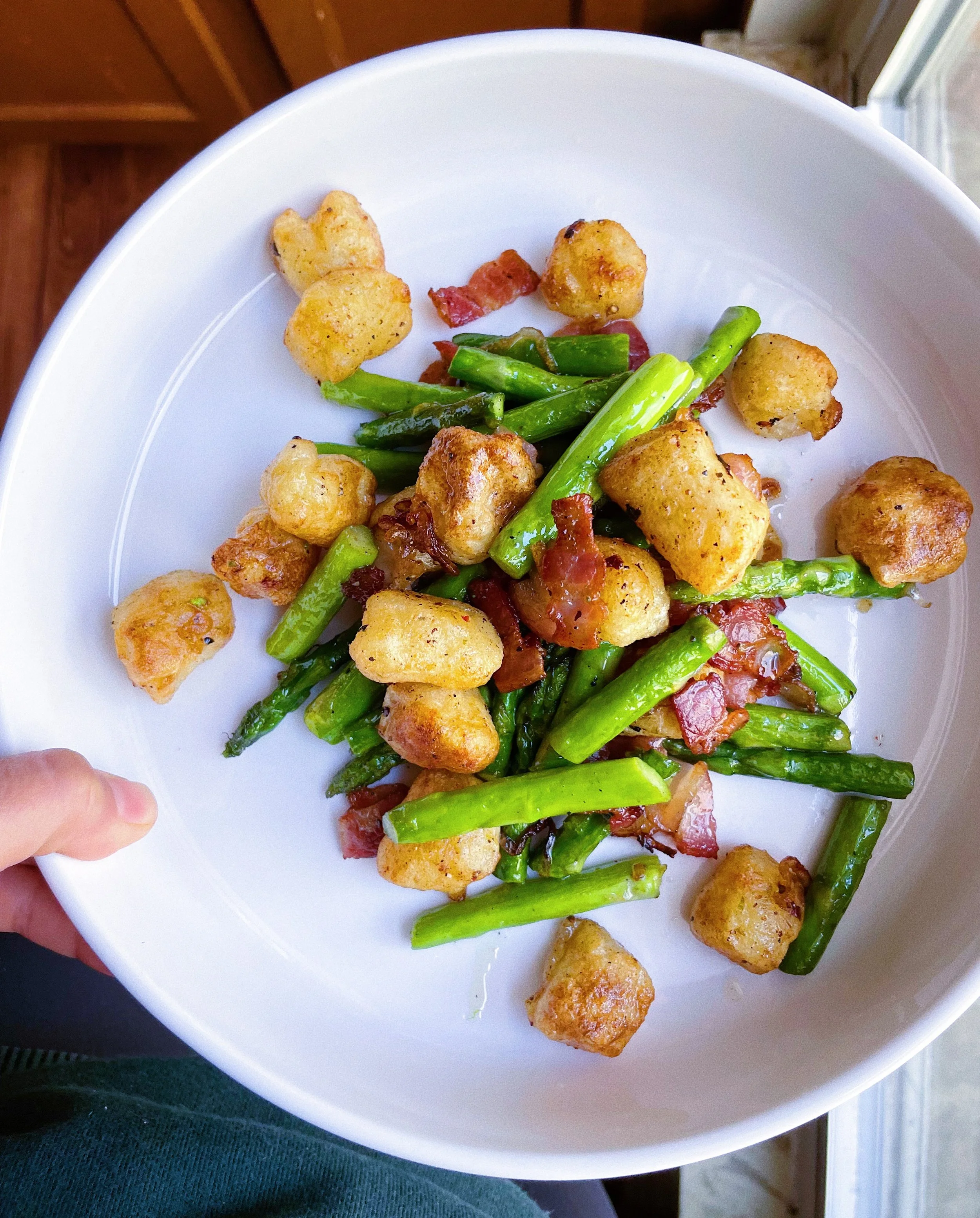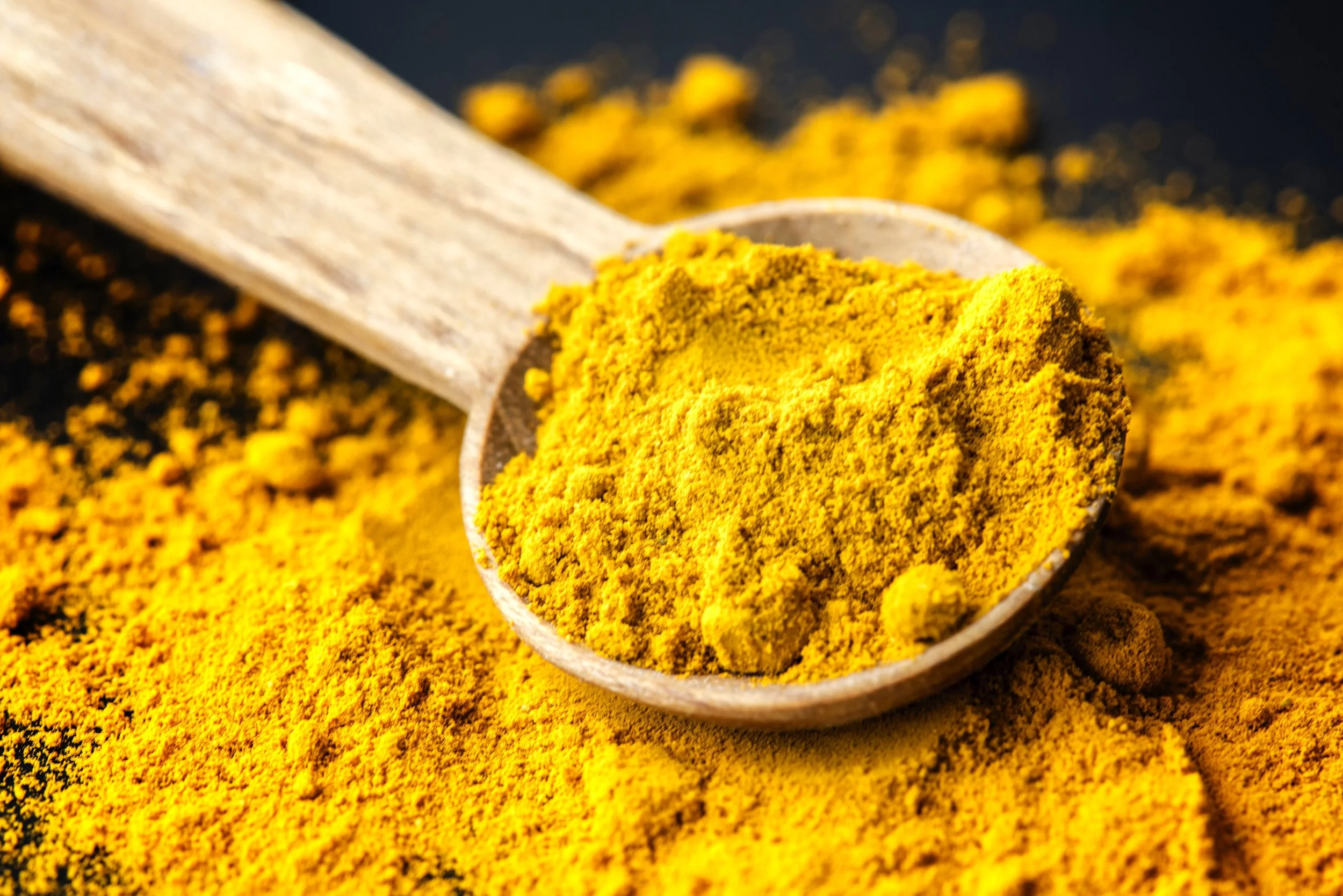We all inherently know greens are good for us, right? It’s been drilled into our heads since we were kids, and as it turns out - for good reason. Today we’re talking specifically about dark leafy greens - kale, collard greens, arugula, spinach and chard. Romaine counts, too. Sorry - iceberg doesn’t and never will count because it’s mostly water and contains very few actual nutrients.
Leafy greens are packed to the brim with nutrients! They’re also full of fiber, low in calories and high in phytonutrients (plant compounds that have a big impact on the health of your cells). Read on to learn more about the ridiculously amazing benefits of eating leafy greens daily (1):
Ever since this study came out earlier this year, I’ve been quoting it every chance I get: one, yes just ONE serving, of leafy greens per day SIGNIFICANTLY slows cognitive decline. This study showed that individuals who consumed green leafy vegetables had brains that appeared 11 years younger than their counterparts who consumed little to no green leafies. A cup of raw greens or 1/2 a cup of cooked greens daily is all it takes folks.
If you think bananas are the only place to get your potassium, I’ve got news for ya - leafy greens have it, too. A cup of cooked spinach contains 840 mg, plus all the other good stuff plus no impact on blood sugar. Potassium is essential for fluid regulation and getting adequate amounts will help keep you bloat-free.
Another surprise for you - leafy greens contain beta-carotene. Yep - that nutrient we usually associate with carrots and sweet potatoes? Greens have it too, making them great for supporting healthy skin.
Combat stress with leafy greens! They contain folate and magnesium - folate helps with mood regulation by participating in dopamine and serotonin production. Magnesium is one of my favorite nutrients to help with stress since it helps relax muscles and is depleted during times of stress.
Support your bones - dark leafies contain calcium and vitamin K, essential for strong bones.
Greens contain many anti-inflammatory properties thanks to their antioxidants and polyphenols. This also puts them in the cancer-fighting category.
The chlorophyll in greens supports the liver by helping to escort toxins out of the body. In our increasingly toxic world, this is so important.
Have I convinced you to eat your greens yet? It’s so simple, yet so many people go throughout their day without eating a single green thing. I personally make it a point to have greens at a minimum of one meal per day, though it’s usually more like two and if I make it to three I feel like a superhero. Here are some of my favorite ways to get your greens in:
Add frozen spinach to smoothies
Serve meals over a bed of raw greens - ex: burrito bowls served over greens, chicken + veggies over greens
Eating one big salad a day - I do this more in the summer, less in the winter
I often sauté onions, garlic and kale as a base for meals
Add greens to your eggs
Add greens to soups, stews and curries (they wilt into almost nothing!)
Use romaine leaves in place of tortillas and use collards as sandwich wraps (surprisingly delicious!)
And now, because I love you, I’m sharing not one, but my TWO favorite green smoothie recipes. One is a little sweeter and a great green smoothie for beginners and the other is less sweet and more deeply cleansing.
Basic Green Smoothie (Great for Beginners)
1 frozen banana
Large handful frozen spinach (don’t be shy - you can’t taste it!)
1-2 tbsp almond butter (optional but yummy and makes the smoothie more filling)
1 cup non-dairy milk or water
Add everything to a blender and blend on high for 30-60 seconds, until smooth and creamy.
Big Green Drank
1 apple or pear, chopped
1/2 lemon, peel removed
1/2 cucumber or zucchini (optional)
Large handful frozen spinach
1 knob ginger
2 tbsp hemp, chia or flax seeds
1/2 tsp spirulina (optional)
1-2 cups water (I usually just fill to the 32 oz line on my blender - hence BIG Green Drank)
Add everything to a blender and blend on high for 30-60 seconds, until smooth and creamy.























